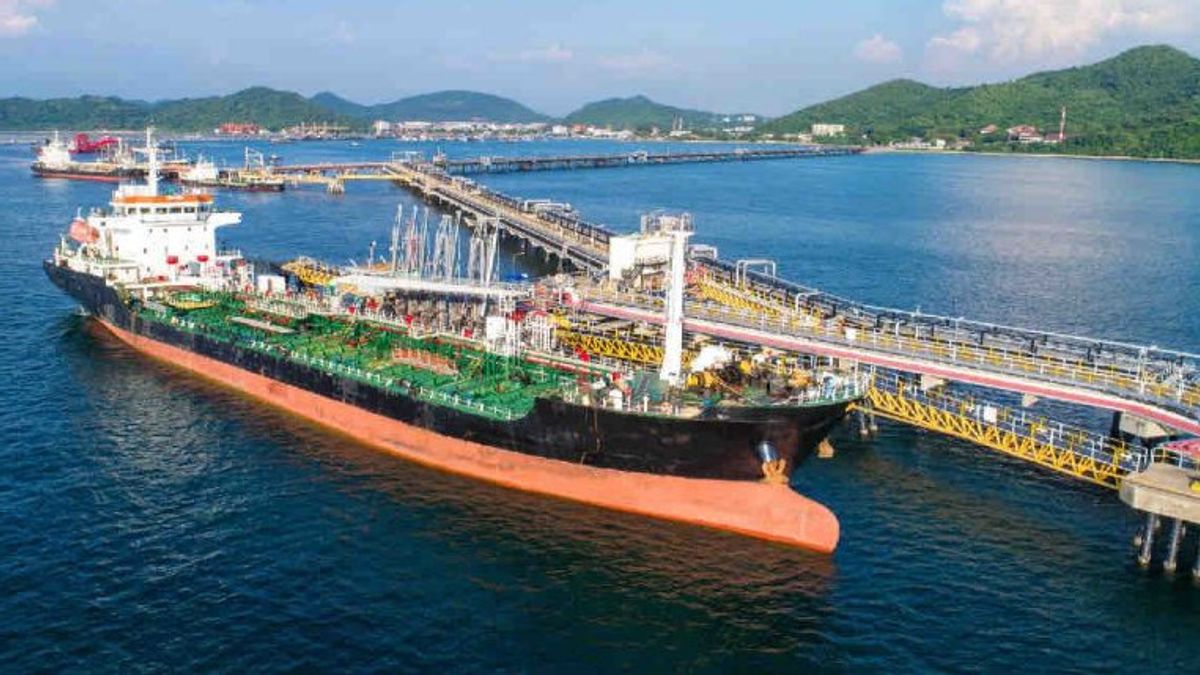JAKARTA - The Ministry of Transportation (Kemenhub) conveyed the safety and security of shipping ships with the flag of the Republic of Indonesia again received world recognition after being included in the 'White List Tokyo MoU' category,' the fourth time.
"This is in accordance with the results of the Tokyo MoU Annual Report in 2023 and shows Indonesia's success in maintaining White List status for four consecutive years, namely 2020, 2021, 2022 and 2023," said Director General of Sea Transportation of the Ministry of Transportation Antoni Arif Priadi, quoted from ANTARA, Sunday, May 5.
In the Tokyo MoU report, Antoni said, it was known that during the last three years of the 654 inspections carried out on Indonesian-flagged ships, there were 28 ships that experienced tension.
The number of vessels that have been delayed has increased slightly, namely five ships in 2021, then 10 ships in 2022, and 13 ships in 2023.
"With Indonesia's entry into the White List Tokyo MoU, it shows the world's recognition of the performance of Indonesian-flagged ships, as well as increasing world confidence in shipping safety and security aspects in Indonesia and making Indonesian-flagged ships able to compete with other flagd ships in the world," said Antoni.
He explained various efforts have been made by the Directorate General of Sea Transportation of the Ministry of Transportation in maintaining the performance of Indonesian ships sailing internationally to maintain White List status, among others, carried out through instructions from the Director General of Sea Transportation.
Antoni said Indonesian-flagged ships that will sail abroad must be examined by the Ship Safety Inspection Officer together with the Marine and Security Inspection Officer of the Foreign Ship (Port State Control Officer) and/or Surveyor of the Recognized Organization (Recognized Organization) before the issuance of the Sailing Approval Letter (SPB).
"Meanwhile, the owner and/or operator whose ships experience detention abroad will be given sanctions in the form of warnings, decreased shipping areas, to freezing the Document of Compliance (DOC) if serious violations are found," said Antoni.
In addition, other efforts were made that the Directorate General of Sea Transportation through the Directorate of Shipships and Maritime Affairs also always provides assistance and conducts a thorough evaluation for companies whose ships experience detention.
"One of them is by sending ship safety inspection officials directly to the ship to ensure that the crew can fulfill all findings obtained by Port State Control officers abroad," said Antoni.
Antoni explained that Indonesia's return benefits are in the White-List category, including the positive image of Indonesia in the eyes of the international community, which increases the reputation of the flag state as a country with high safety and compliance standards for international maritime regulations.
According to him, being included in the category of white-list ships with national flags will be considered better by insurance, ship tenants, and other stakeholders.
"In terms of inspection, the ship is subject to a reduction in the frequency of the Inspection, because ships from White-List countries tend to be checked more rarely because they are considered to have a high level of compliance and this can reduce waiting times and avoid unnecessary delays when entering ports", Antoni said.
Another advantage, added Antoni, is the efficiency of ship operations.
This is due to a reduction in inspection times allowing ships to operate more efficiently, reduce operational costs, and increase productivity, and ships can pass inspection procedures more quickly, thus saving time and resources.
"Meanwhile, in terms of easy port access, ships from the White-List state may get easier access to ports, because they are considered low risk, so the Port is more likely to accept ships with a good safety track record without having to go through strict inspections," said Antoni.
Meanwhile, in terms of economy, state-flagged vessels in White-List are more desirable by ship operators and tenants, increasing the competitiveness of the country's shipping industry. This will certainly increase the number of new ship registrations to the country, which means an increase in revenue from registration and tax costs.
Likewise, in terms of safety standards, Indonesia's existence in the White-List category shows that Indonesia has an effective maritime control system, thus helping to improve the safety standards of ships and crew members, which overall improves the maritime industry.
"More than that, in diplomatic support, flag states on white-list have a stronger position in international negotiations regarding maritime rules, thus allowing countries to play a more role in global policy making and maritime standards," said Antoni.
SEE ALSO:
Antoni requested that ship owners/operators not only be complacent with this positive achievement but also always be committed to continuing to comply with international rules if their ships operate abroad.
Throughout 2023, Indonesia's Port State Control Officer (PSCO) has carried out 3,180 inspections on ships with foreign flags and has detention for 34 ships and the Indonesian Classification Bureau as the only National Classification Agency to get a good assessment, namely High Performance," said Antoni.
The English, Chinese, Japanese, Arabic, and French versions are automatically generated by the AI. So there may still be inaccuracies in translating, please always see Indonesian as our main language. (system supported by DigitalSiber.id)
















